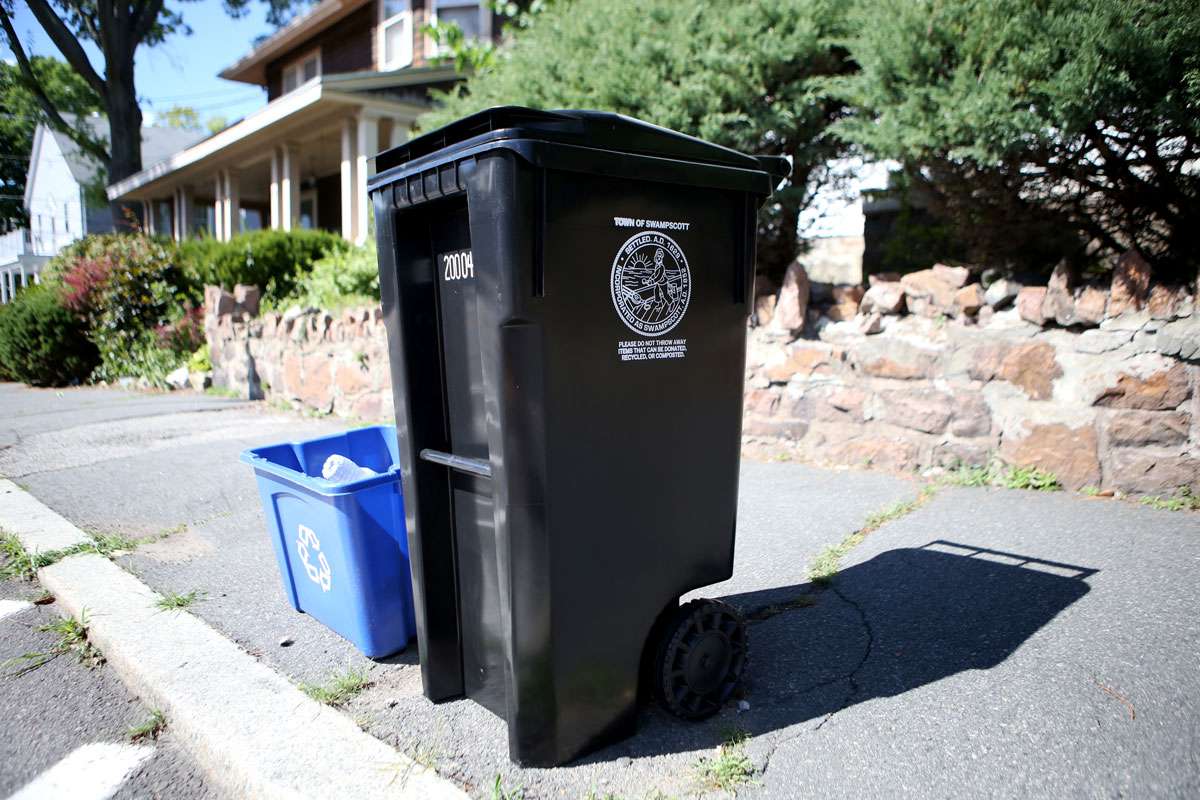SWAMPSCOTT — At the direction of the Massachusetts Department of Environmental Protection, the town is taking action to achieve a 30 percent reduction in its non-recyclable solid waste by 2030.
In its first full presentation to the Select Board since forming in January 2021, the Solid Waste Advisory Committee gave an update on its 2030 goal and noted that it hopes to achieve a 90 percent reduction by 2050. Both goals are the result of guidance from the Massachusetts DEP 2030 Solid Waste Master Plan. Solid Waste Advisory Committee Chair Wayne Spritz presented overall waste, compost, and recycling data at a Select Board meeting Wednesday that showed Swampscott is currently on track to reach the 2030 goal.
“I love the idea that we have an inspired committee to talk about trash and to talk about how this data can drive behavior. There’s good news in this data but there is also some really tremendous opportunity,” Town Administrator Sean Fitzgerald said. “There’s a lot of other communities that haven’t made these changes. They’re waiting for that shoe to drop and it’s going to be abrupt.”
Following an increase in the total tons of nonrecyclable waste from 2019 to 2020, partially due to the COVID-19 pandemic, Swampscott introduced a one trash barrel limit in August 2020. The town’s total non-recyclable waste dropped by 452 tons the following year. This year, the town is on track to lower that number again.
Similarly, the town’s community compost rates, measured by fiscal year, show Swampscott is making environmental progress. From 2019 to 2020, the town’s community compost rate was 57 tons. From 2020 to 2021, that figure was 104, and from 2021 to 2022, it was 135.
“Folks are climatizing. They’re getting used to that change in threshold in solid waste and recycling and shifting their behaviors. Public education and information is helping to make them aware of diversion,” Fitzgerald said. “We’ve started to walk down this path and it’s difficult changing behavior but quite frankly, the work that we have going on in the Solid Waste Committee — and all the other committees — it’s all a part of an effort to just be cleaner and greener.”
Select Board members also discussed the town’s metal and mattress recycling programs at the meeting Wednesday. Spritz provided data showing that Swampscott has recycled about 127 tons of metal since it started doing so halfway through 2020. Since the Massachusetts DEP mandated that towns provide a way for residents to recycle mattresses in March, Swampscott has hauled away 224.
Spritz said the committee is active on social media and frequently monitors Facebook to communicate with town residents about initiatives, such as the town’s recycling programs. Select Board members noted at the meeting Wednesday that there is a demand for more town-sponsored tag sales and other community events that allow residents to donate and reuse items, rather than throwing them away.
“We’re trying to have the heartbeat of the community and get feedback as needed,” Spritz said.
At the meeting, Select Board members also approved a motion to restrict parking on Pine Street to residents only and install a stop sign on Plymouth Avenue. The Traffic Advisory Committee also advised the board to introduce stop signs at the intersection of Pine, Erie, and Superior Streets, however, it did not take action on that recommendation as it is awaiting feedback from the Swampscott Police Department.
Rachel Barber can be reached at [email protected].

